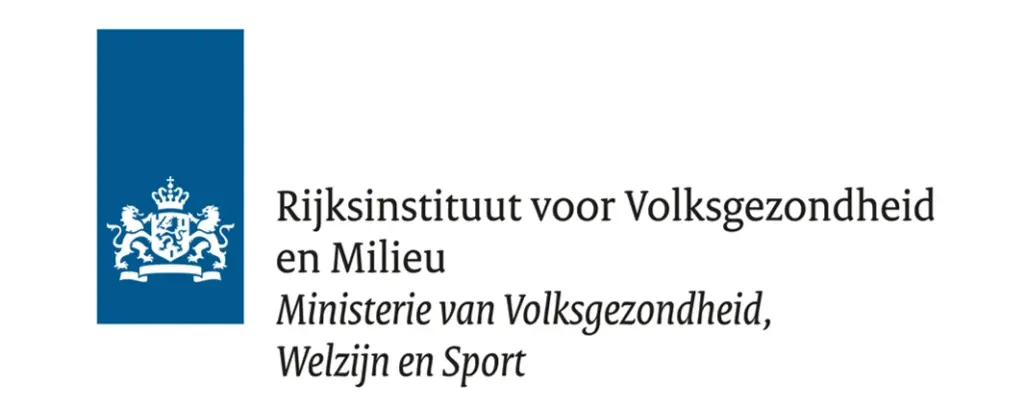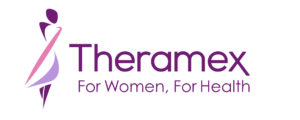The MenoPause Consortium is working towards more healthy and productive years for perimenopausal women. In the consortium, researchers, doctors, lifestyle experts, perimenopausal women and other stakeholders work together to better identify the adverse effects of the menopause transition and develop strategies to prevent these adverse effects.
Themes
The study on the effects of the menopause transition is divided into the themes ‘Sleep & Mental Health’, ‘Physical Health’ and ‘Labour’.
SLEEP & MENTAL HEALTH
During the menopause transition, about half of women experience sleep problems such as problems falling asleep, waking up at night and not being able to get back to sleep. Sleep is further disturbed by hot flushes, hot flushes and night sweats, which even four in five women suffer from at some point during menopause. Poor sleep is a major contributor to the development of depression, diabetes and cardiovascular disease, which women are at increased risk of during menopause. We need to understand the mechanisms of the chain of disorders to develop rationally effective interventions.
Aim and plan of action
We aim to identify the causes of complaints about sleep and mood during perimenopause and to find the most effective combination of existing interventions, including a guided eHealth sleep intervention and hormone therapy. Our approach combines a randomised controlled trial with longitudinal data from women in large-scale observational cohort studies. The results are expected to lead to interventions that allow healthcare providers to better treat and prevent menopause-related sleep problems, mental problems and disorders, by incorporating pharmacological and guided cognitive behavioural and lifestyle interventions into their care and treatment plans.
PHYSICAL HEALTH
The menopause transition is accompanied by physical changes. Bone mass decreases at an accelerated rate, increasing the risk of bone fractures later in life. Before menopause, women are less susceptible to cardiovascular disease than men, but after menopause, women’s risk increases. Possibly, the risk of diabetes mellitus (diabetes) also increases and blood sugar regulation changes in women who already have diabetes. It is currently difficult to predict which women will and will not experience these health problems. Also, much is still unknown about the role of hormone changes during menopause in the development of these common conditions.
Aim and plan of action
We will identify factors (environmental factors, genes, biomarkers) in large groups of menopausal women that predict which women are at increased risk for accelerated bone loss, cardiovascular disease and diabetes. Using bone, vessel wall, muscle and liver cells, we will unravel in the laboratory the mechanisms involved in the development of these conditions during menopause. With the knowledge of predictors and mechanisms, we will develop and test individualized interventions to better treat and prevent these conditions.
» LABOUR
LABOUR
One in three working perimenopausal women experience a negative impact of perimenopausal symptoms at work. Women with many perimenopausal symptoms feel less able to work, are more often exhausted after a workday and report sick more often. We do not yet know which characteristics of work combined with which perimenopausal symptoms lead to work problems and which women are at increased risk of these effects of the perimenopause. There is also a need for a preventive program that focuses not only on the woman herself, but also on the organization of work and the workplace
Aim and plan of action
Using various research methods, we want to answer the question of how working women around the transition can be best supported in the workplace. To this end, we will enter into dialogue with women themselves, managers and human resources professionals. We are also analyzing combinations of risk factors in long-term cohort studies (Lifelines and HELIUS). Factors that we examine are not only characteristics of the woman (such as whether or not she exercises or drinks alcohol) and experienced menopause symptoms, but also regulation possibilities in work and social support at work.
Based on the results of this research, we will develop a preventive program aimed at both women and their employers. We will pay attention to differences between women according to their background and circumstances. We will implement and evaluate the program in practice. By collaborating in the development and evaluation with women, managers, HR and health and safety professionals, we hope to create a program that has a demonstrable positive impact on the work performance of women around the transition.
Research institutes










Coordination

Peter Bisschop
project leader
Prof. Peter Bisschop is a consultant endocrinologist at Amsterdam UMC

Astrid Bakker
vice project leader
Prof. Astrid Bakker is a biologist at Academisch Centrum Tandheelkunde Amsterdam

Kimberley Rentner
project manager
Kimberley Rentner is a grant advisor and project manager at Amsterdam UMC
Sleep and mental health

Birit Broekman
theme leader
Prof. Birit Broekman is a psychiatrist at OLVG and Amsterdam UMC

Eus van Someren
theme leader

Susan Picavet
theme leader

Anne-Sophie Koning
post-doc

Francesca van Baarzel
PhD candidate
Francesca van Baarzel is a psychologist and PhD candidate at Amsterdam UMC
Physical health
The ‘”Physical Health” theme is divided into the sub-themes “Diabetes Mellitus”, “Cardiovascular Disease” and “Osteoporosis”.
Diabetes Mellitus

Sarah Siegelaar
theme leader
Dr. Sarah Siegelaar is a consultant endocrinologist at Amsterdam UMC

Eveline Bruinstroop
theme leader
Dr. Eveline Bruinstroop is a consultant endocrinologist at Amsterdam UMC

Irene van Valkengoed
senior scientist
Dr. Irene Valkengoed is a social epidemiologist at Amsterdam UMC

Peter Bisschop
senior scientist
Prof. Peter Bisschop is a consultant endocrinologist at Amsterdam UMC\

Richard Jaspers
senior scientist

Maarten Steinz
post-doc
Dr. Steinz is a molecular physiologist at Amsterdam UMC

Rona Brokkelkamp
PhD candidate
Rona Brokkelkamp is MD and PhD candidate at Amsterdam UMC

Erik Kemper
PhD candidate
Erik Kemper is PhD candidate at Amsterdam UMC

Merel Goedkoop
PhD kandidaat
Merel Goedkoop is PhD candidate at Amsterdam UMC

Zhenjia Zhong
PhD candidate
Zhenjia Zhong is PhD candidate at VU Amsterdam
Cardiovascular diseases

Maryam Kavousi
theme leader

Jeanine Roeters van Lennep
theme leader

Yvonne Louwers
Post-doc
Yvonne Louwers is a gynecologist specialized in Reproductive Medicine and Reproductive Endocrinology at Erasmus MC.

Lotte Paulis
PhD kandidaat
Lotte Paulis is a medical doctor and PhD candidate at Erasmus MC
Osteoporosis

Astrid
theme leader
Prof. Astrid Bakker is a biologist at Academisch Centrum Tandheelkunde Amsterdam

Annegreet Vlug
theme leader
Dr. Annegreet Vlug is a consultant endocrinologist at Medisch Centrum Jan van Goyen and OLVG

Peter Bisschop
senior scientist
Prof. Peter Bisschop a consultant endocrinologist at Amsterdam UMC

Fernando Rivadeneira
senior scientist

Victor van Santen
post-doc
Dr. Victor van Santen is a molecular biologist at Academisch Centrum Tandheelkunde Amsterdam

Petra Juffer
senior scientist
Dr. Petra Juffer is a senior lecturer and researcher at Saxion University of Applied Sciences

Cindy Kelder
trainer scientist
Dr. Cindy Kelder is a trainer-scientist at HU University of Applied Sciences Utrecht
Labour

Karen Nieuwenhuijsen
theme leader
Dr. Karen Nieuwenhuijsen is a scientist Work and Health at Amsterdam UMC

Sandra van Oostrom
theme leader
Dr. Sandra van Oostrom is an epidemiologist Work and Health at RIVM

Irene van Valkengoed
senior scientist
Dr. Irene Valkengoed is a social epidemiologist at Amsterdam UMC

Karin Proper
senior scientist
Prof. Karin Proper is an epidemiologist and professor of Labour & Health promotion at RIVM and Amsterdam UMC

Bette Loef
post-doc
Dr. Bette Loef is post-doc at RIVM

Annemarie Reilingh
post-doc
Annemarie Reilingh is post-doc Women & Child and at Public & Occupational Health at Amsterdam UMC

Michelle Clevis
PhD candidate
Michelle Clevis is a PhD candidate at RIVM
Communication and societal impact

Dorenda van Dijken
communications consultant
Dorenda van Dijken is a gynaecologist at OLVG

Fedde Scheele
impact officer

John Dierx
impact officer
Dr. John Dierx is a lecturer Equal Chances to Healthy Choices at Avans Hogeschool

Jacqueline Broerse
senior scientist
Prof. dr. Jacqueline Broerse is professor of innovation and communication in the health & life sciences at VU Amsterdam

Andrea van der Eerden
PhD candidate
Andrea van der Eerden is PhD candidate at VU Athena

Metty Spelt
Program manager
Metty Spelt is Program manager Health at WOMEN Inc
Funding
Co-funders & cooperation partners

























